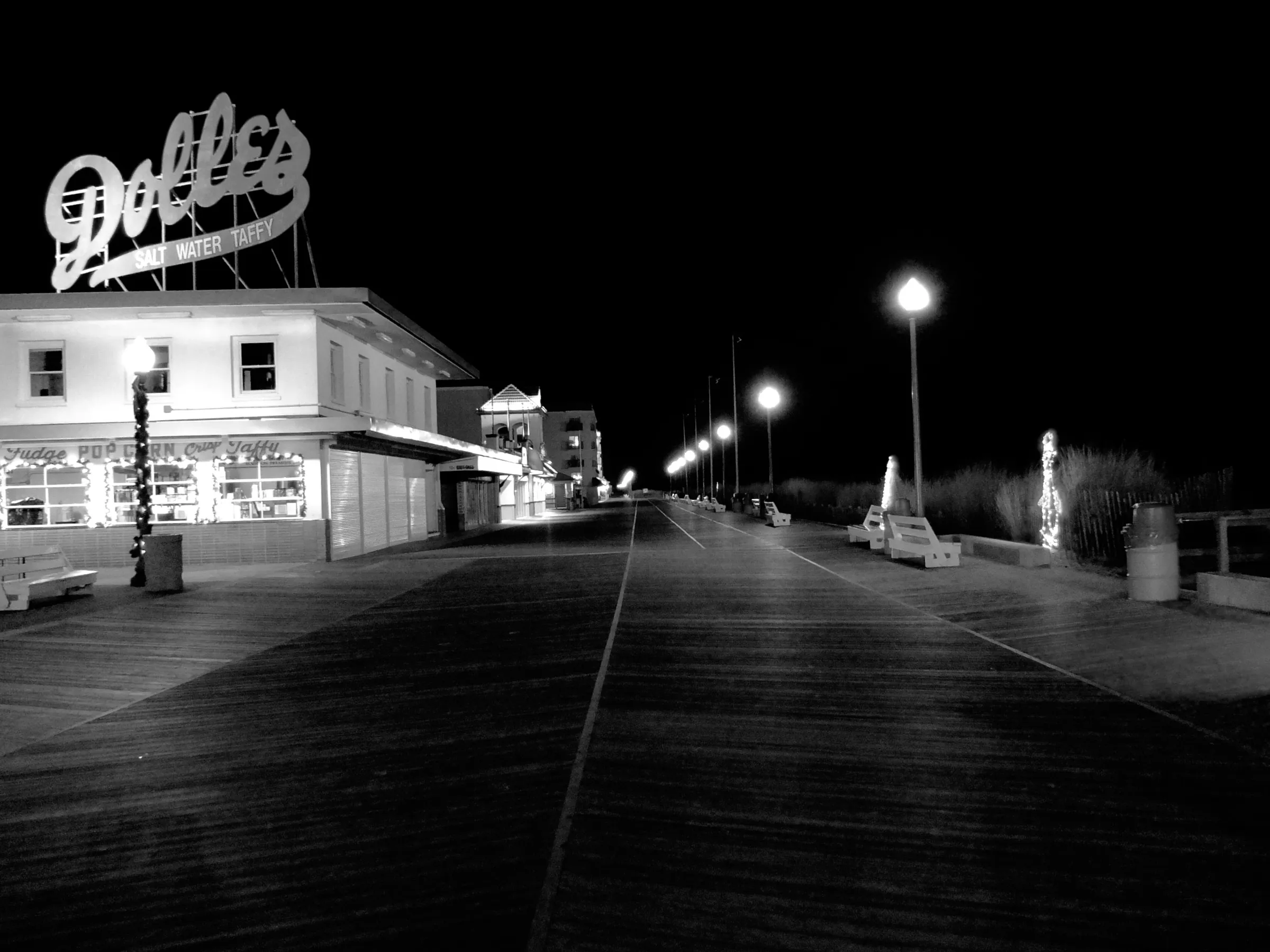0007 Candyland
There is a piano in the dining room of a restaurant that occupies the first floor of an oceanfront hotel in Rehoboth Beach, Delaware. That dining room's very large windows look out onto the weathered boardwalk, past the reeds and grasses that cover the dunes, over the smooth sand of the beach, and into the gray-blue Atlantic Ocean.
The boardwalk's worn, wooden planks extend south toward the city's main avenue, the hotel perched near its the northern end.
On the corner of that avenue, in an old YMCA building, sat a candy shop that had been making and selling salt water taffy there for more than ninety years. In the hotter months, that shop's door was always propped wide open, welcoming the humid, ocean air. Local kids with enviable summer jobs leaned out the windows handing bags of caramel corn and rectangular boxes of taffy to tourists. But, not only to tourists.
And above that candy shop there was a large, orange sign, pushing into the sky, taller than everything around it, visible up and down that boardwalk and across the avenue.
That sign soon came into view for anyone walking south from the restaurant that occupies the first floor of that four-story hotel. The restaurant with the piano in the dining room.
Even in the winter, when the city was quiet, and the candy shop's doors were often closed, the sign was still bright and the color still warm.
